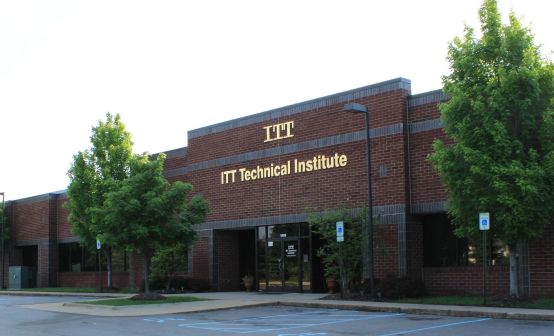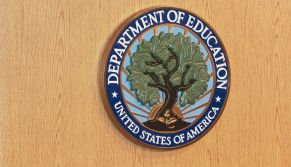DeVos: Technology enables educators to ‘rethink’ school

U.S. Secretary of Education Betsy DeVos reiterated her longstanding call for educators to “rethink” school on Monday at the State Education Technology Directors Association conference, where she highlighted an award-winning elementary school technology program from St. Albans, Vermont, alongside her remarks.
“Why isn’t technology more widely embraced? Why limit what a student can learn based upon the faculty or facilities available? Why do students have to go to a school building in the first place?” Devos said, speaking to a room of state education leaders and private sector vendors.
The secretary has made her “everyone question everything” ethos a hallmark of her reform campaign, which has occasionally drawn ire from some in government and in education. In January, she told the U.S. Conference of Mayors that successful education reform “won’t come from Washington,” citing much of the same evidence and philosophy she shared on Monday — that each student is different, and that one policy cannot work for everybody.
“Learning is really dynamic and spontaneous,” she said. “Wider use of technology can make classrooms more nimble and active, and empower students to take more control of their learning pathways.”
Expanding those pathways has been a tenet of DeVos’ reform, as she has embraced individualized learning to fill the nation’s 7 million open jobs — many of which, she said, demand coding experience. According to Code.org, roughly 570,000 computing jobs are unfilled in the U.S. right now.
DeVos noted the Every Student Succeeds Act — a piece of legislation signed by President Barack Obama in 2015 that requires each state to submit an educational accountability plan to the federal government — as a platform through which state and school leaders could experiment with educational technology, whether it be through personalized computers or other devices. DeVos shared the stage with several elementary and middle school students from St. Albans, who had used technology and computational, design-based thinking to create their own small businesses, among other projects. The students also curate their own e-portfolio starting in first grade, which they keep and maintain throughout their K-12 career in the district.
DeVos joked with the students that she “sometimes found school boring,” but that it didn’t have to be that way.
“Learning is fun, it’s interesting and can be exciting, and school should be too. We want to empower you to make it so — you represent 100 percent of our future, and you deserve 100 percent of our effort,” she said.




